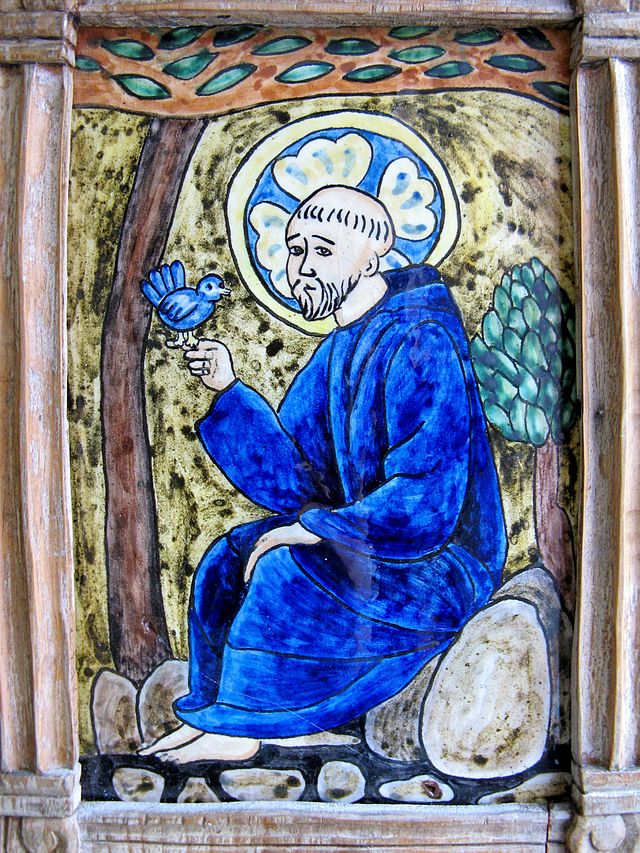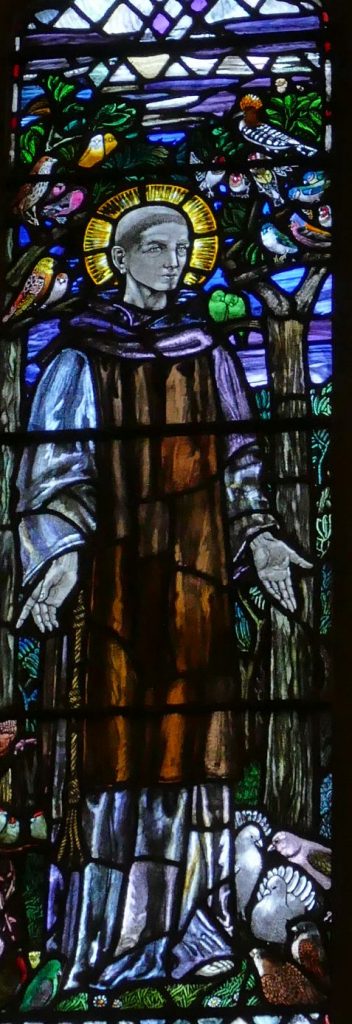Today’s hymn from Sing Praise is “Lord, make us servants of your peace” by James Quinn. It’s a setting of a well known prayer by St Francis of Assisi. As a long metre text it could be set to any of many existing tunes, the suggested one being ‘O Waly Waly’. Quinn has kept, I think, to as close a translation as possible within the regular 8-syllable metre, rather than attempt to rhyme the words. So it reads more as blank verse than a song.
The essence of this prayer is, firstly, for the will to set aside our own needs and desires for the sake of other people. That much is a basic building block of civilisation. But it goes beyond that in actively seeking to bring love, peace, hope, reconciliation, understanding and other relational virtues, recognising that this will mean giving more than we receive and loving even where love is not returned.
That is the basis not only of Christianity but of other religions and spiritual movements: Francis of course was the head of a Catholic religious order, but most of these words are ones that people of all faiths can share, apart perhaps from the one specific appeal to Jesus, which could equally be addressed to God by whatever name he is known. The last verse is more specifically Christian in that it brings the hope of resurrection, and an awakening in heaven’s light where there is eternal peace.
The alternative sung version of this prayer, Make me a channel of your peace” by Sebastian Temple, has become well known across the Churches, but this one seems an equally singable one that could grow on me.

